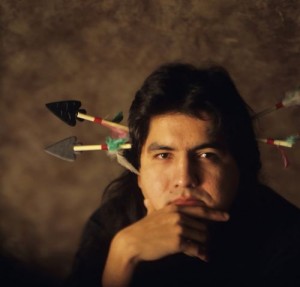 This week’s episode of Selected Shorts features one of my favorite short story writers: Sherman Alexie. Sherman Alexie is the author of twenty-two books, including The Absolutely True Diary of a Part-Time Indian, winner of the 2007 National Book Award for Young People’s Literature, War Dances, winner of the 2010 PEN Faulkner Award, and The Lone Ranger and Tonto Fistfight in Heaven, a PEN Hemingway Special Citation winner. He is also the winner of the 2001 PEN Malamud Award for Excellence in the Art of the Short Story. Smoke Signals, the film he wrote and co-produced, won the Audience Award and Filmmakers’ Trophy at the 1998 Sundance Film Festival. His story, “Breaking and Entering,” which appears in War Dances, will be performed on Selected Shorts this week by the Tony award-winning actor, B.D. Wong. To find your time/station go here, or check out the podcast when it goes up later this week.
This week’s episode of Selected Shorts features one of my favorite short story writers: Sherman Alexie. Sherman Alexie is the author of twenty-two books, including The Absolutely True Diary of a Part-Time Indian, winner of the 2007 National Book Award for Young People’s Literature, War Dances, winner of the 2010 PEN Faulkner Award, and The Lone Ranger and Tonto Fistfight in Heaven, a PEN Hemingway Special Citation winner. He is also the winner of the 2001 PEN Malamud Award for Excellence in the Art of the Short Story. Smoke Signals, the film he wrote and co-produced, won the Audience Award and Filmmakers’ Trophy at the 1998 Sundance Film Festival. His story, “Breaking and Entering,” which appears in War Dances, will be performed on Selected Shorts this week by the Tony award-winning actor, B.D. Wong. To find your time/station go here, or check out the podcast when it goes up later this week.
Archive: Author: Hannah
Italian Spiderman
I’m a few years late to the Italian Spiderman party, but now that I’ve met him, I’m a fan. For more, I suggest watching Episode Three of his adventures, where he fights a crocodile and forces a chicken to lay a pack of cigarettes.
Selected Shorts: Yurts, Plums & the Federal Writers Project
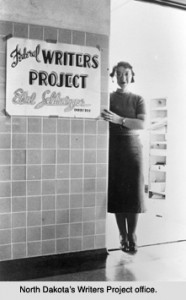 Two great stories this week: “Yurt,” by Sarah Shun-Lien Bynum (one of the New Yorker’s 20 Under 40), read by the great Joanna Gleason and “Wild Plums” by Grace Stone Coates. Both a writer and an editor, Coates helped create the guidebook for the Federal Writers Project, which famously recorded the life stories of everyday Americans, and employed many well-known authors, including John Steinbeck, Zora Neale Hurston, and Ralph Ellison. Coates sets the bar high with “Wild Plums,” which was published in The Best American Short Stories for 1929. Later, John Updike picked it as one of the Best American Short Stories of the Century. To find your time/station go here, or check out the podcast.
Two great stories this week: “Yurt,” by Sarah Shun-Lien Bynum (one of the New Yorker’s 20 Under 40), read by the great Joanna Gleason and “Wild Plums” by Grace Stone Coates. Both a writer and an editor, Coates helped create the guidebook for the Federal Writers Project, which famously recorded the life stories of everyday Americans, and employed many well-known authors, including John Steinbeck, Zora Neale Hurston, and Ralph Ellison. Coates sets the bar high with “Wild Plums,” which was published in The Best American Short Stories for 1929. Later, John Updike picked it as one of the Best American Short Stories of the Century. To find your time/station go here, or check out the podcast.
Selected Shorts: Vampires!
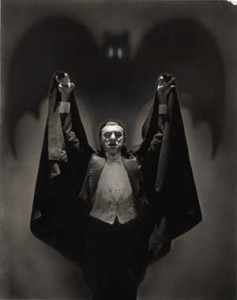 I grew up in Salem, Massachusetts, where it is Halloween 365 days a year. One of my first jobs was at a haunted house, where I dressed in a rubber mask and scared people. Because of this I’m pretty comfortable with the macabre, so I was excited that Selected Shorts is getting down and dark this week with vampires and my favorite leading man of strangeness, Edgar Allan Poe. Aasif Mandvi reads “Dracula’s Guest” by Bram Stoker and “The Masque of the Red Death” by Edgar Allan Poe is performed by Fionnula Flanagan. Go here to find your radio broadcast, or just download the podcast at the Selected Shorts site. Thanks everyone, for listening.
I grew up in Salem, Massachusetts, where it is Halloween 365 days a year. One of my first jobs was at a haunted house, where I dressed in a rubber mask and scared people. Because of this I’m pretty comfortable with the macabre, so I was excited that Selected Shorts is getting down and dark this week with vampires and my favorite leading man of strangeness, Edgar Allan Poe. Aasif Mandvi reads “Dracula’s Guest” by Bram Stoker and “The Masque of the Red Death” by Edgar Allan Poe is performed by Fionnula Flanagan. Go here to find your radio broadcast, or just download the podcast at the Selected Shorts site. Thanks everyone, for listening.
Clepsydras
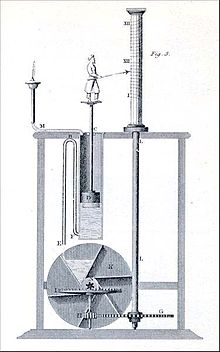
Clepsydras (Water Clocks)
Selected Shorts: The Recap
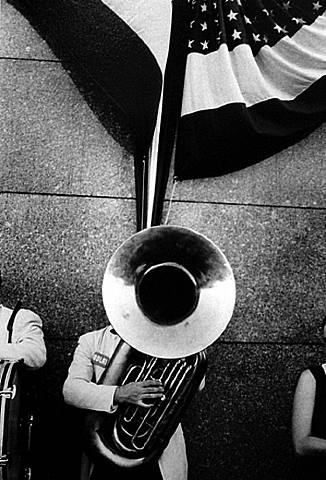
I’ve been on the road most of this summer, and have fallen behind on my weekly Selected Shorts posts. To catch us up, here’s a recap, with links to the podcasts–just click through to listen:
First, there was a trio of stories featuring REVELATIONS, involving classic noir, the Amish, and…wait for it…Disco. Ted Marcoux read William Cole’s crime story: “Waiting for Rusty.” Then Khris Lewin took the stage in “Departure” by One Story author Andrew Porter. Finally, the platform heels came out in Karen Russell’s “Disco Papa,” which was read by Susanna Thompson.
Second, we took a LONG WALK OVER A THIN WIRE, with an excerpt from Colum McCann’s National Book Award-winning novel, Let the Great World Spin read by Brian Stokes Mitchell. This was followed by another great tale, Sherman Alexie’s “Salt” performed by David Strathairn.
This coming week, we’ve got a visual feast, with a selection of stories inspired by the haunting photographs of ROBERT FRANK. “Sunflower Sutra” by Allen Ginsberg, performed by our own Isaiah Sheffer;”The Death of Jim Taylor” by Elissa Hutson, and “Good Living” by Aleksandar Hemon, both performed by Boyd Gaines; “Barbara Stanwyck, It’s Your Time to Shine” by Bianca Galvez, and “The Thing Around Your Neck” by One Story author Chimamanda Ngozi Adichie, both performed by Condola Rashad.
That’s enough short stories to keep everyone going for a while. Go here to find the station/time for this week’s show, or visit the Selected Shorts website to hear these shows for free, on podcast!
Animal Crackers in Chinese
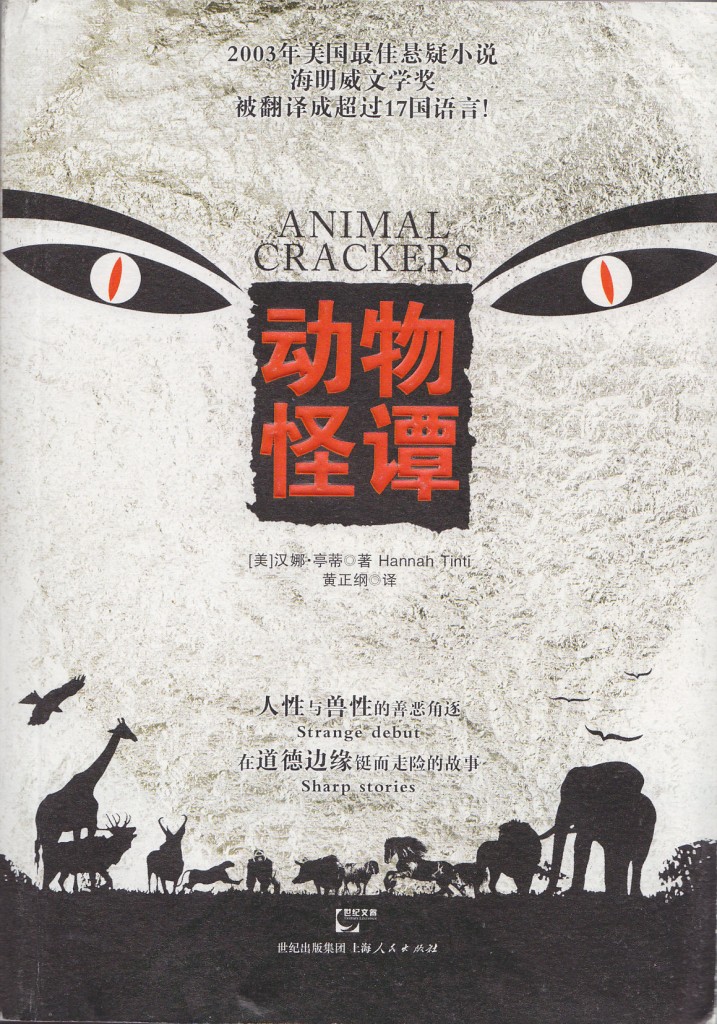
Simplified Edition, to go with the Traditional, thanks to The Marsh Agency, Big Apple Tuttle-Mori, & Shanghai People’s Publishing House.
Selected Shorts: Wallace Stegner
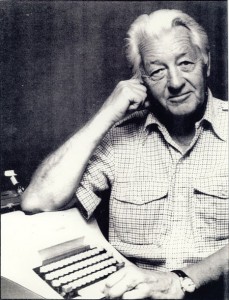 This week’s episode of Selected Shorts features two stories by Wallace Stegner: “The Traveler,” read by Jack Davidson, and “Goin’ to Town,” read by Jack Davidson, Isaiah Sheffer, and Lillo Way. Recently I listened to Stegner’s radio essay for “This I Believe.” What did he believe in? Moderation and conscience rather than fashion and faith. He also sympathized with witches and heretics. What I admire about Stegner is that he took these strong convictions and put them into action, particularly with his environmental work. Besides his Pulitzer-prize winning books, he’s probably best known for this letter, which he wrote to the Outdoor Recreation Resources Review Commission in 1960. The letter had a big hand in passing the 1964 Wilderness Act. So while you’re out there hiking and swimming and camping this week, tune your radios and listen in to Selected Shorts, so you can get to know this extraordinary writer and friend of the American West. Here’s just a bit from Stegner’s letter, describing a section of desert in Utah called Robbers’ Roost. He’s got a real talent for capturing the landscape, and how important it can be:
This week’s episode of Selected Shorts features two stories by Wallace Stegner: “The Traveler,” read by Jack Davidson, and “Goin’ to Town,” read by Jack Davidson, Isaiah Sheffer, and Lillo Way. Recently I listened to Stegner’s radio essay for “This I Believe.” What did he believe in? Moderation and conscience rather than fashion and faith. He also sympathized with witches and heretics. What I admire about Stegner is that he took these strong convictions and put them into action, particularly with his environmental work. Besides his Pulitzer-prize winning books, he’s probably best known for this letter, which he wrote to the Outdoor Recreation Resources Review Commission in 1960. The letter had a big hand in passing the 1964 Wilderness Act. So while you’re out there hiking and swimming and camping this week, tune your radios and listen in to Selected Shorts, so you can get to know this extraordinary writer and friend of the American West. Here’s just a bit from Stegner’s letter, describing a section of desert in Utah called Robbers’ Roost. He’s got a real talent for capturing the landscape, and how important it can be:
It is a lovely and terrible wilderness, such as wilderness as Christ and the prophets went out into; harshly and beautifully colored, broken and worn until its bones are exposed, its great sky without a smudge of taint from Technocracy, and in hidden corners and pockets under its cliffs the sudden poetry of springs. Save a piece of country like that intact, and it does not matter in the slightest that only a few people every year will go into it. That is precisely its value. Roads would be a desecration, crowds would ruin it. But those who haven’t the strength or youth to go into it and live can simply sit and look. They can look two hundred miles, clear into Colorado: and looking down over the cliffs and canyons of the San Rafael Swell and the Robbers’ Roost they can also look as deeply into themselves as anywhere I know.
Gowanus, pt. 37
Selected Shorts: Best American
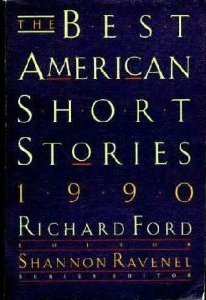 I was in high school, killing time in a bookstore in Boston, when I picked up my first copy of Best American Short Stories from a table of new releases. It was Best American Short Stories 1990, edited by Richard Ford. I flipped through and started reading “River of Toys” by Edward Allen. It began like this:
I was in high school, killing time in a bookstore in Boston, when I picked up my first copy of Best American Short Stories from a table of new releases. It was Best American Short Stories 1990, edited by Richard Ford. I flipped through and started reading “River of Toys” by Edward Allen. It began like this:
“I love to walk with my eyes closed. At night, coming back to my apartment from work, there are almost no cars on the road, and I can walk and walk until I hear a car coming up behind me, or until I see through my closed eyelids the light of one coming toward me, and I open my eyes and find myself walking in the middle of Highland Avenue.”
Yes, I remember thinking. Yes, that’s exactly it. I sat down, and I kept reading. The 1990 edition of BASS has some amazing stories: “How to Talk to a Hunter” by Pam Houston, “Car-Crash While Hitchhiking” by Denis Johnson, “You’re Ugly, Too” by Lorrie Moore, and many more. The table of contents is a who’s who of writers: Madison Smartt Bell, Richard Bausch, Alice Munro, Joan Wickersham, Joy Williams, Steven Millhauser–but it was the first time I had read any of them. I bought the book, and after I finished it I went to the library and looked up each of the writers, and then I started reading their novels and collections. I still buy Best American Short Stories every year (along with the PEN/O Henry Prize Stories). They are lined up on my shelves–a band of color–and each one has introduced me to a new voice I should be reading. Selected Shorts is another great place for introductions, and this week’s show presents two talented authors that should be on everyone’s radar: Rebecca Makkai & Julie Otsuka. “The Briefcase,” by Rebecca Makkai (included in the 2009 Best American Short Stories) is read by Victor Garber. “Diem Perdidi,” by Julie Otsuka, is read by Jayne Atkinson. To listen to the podcast or find your station, go here.
